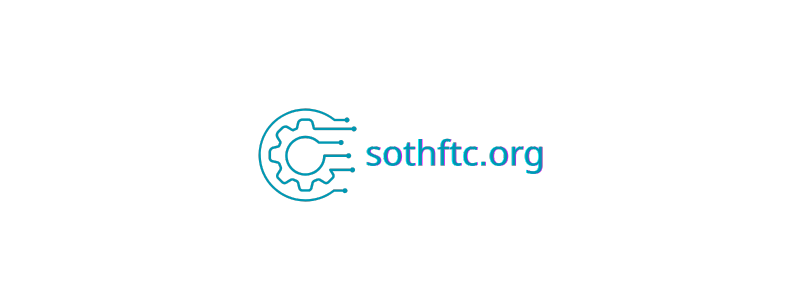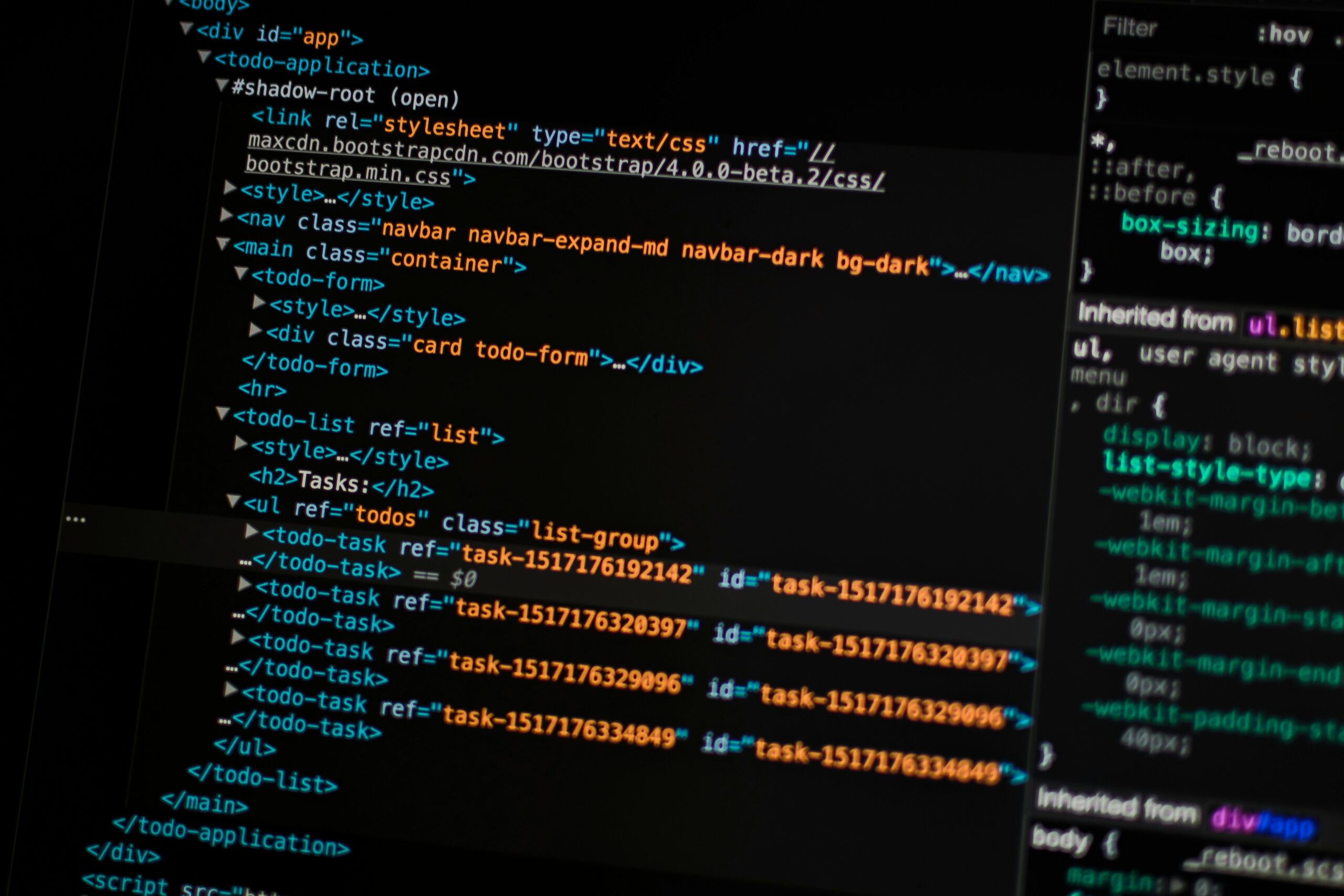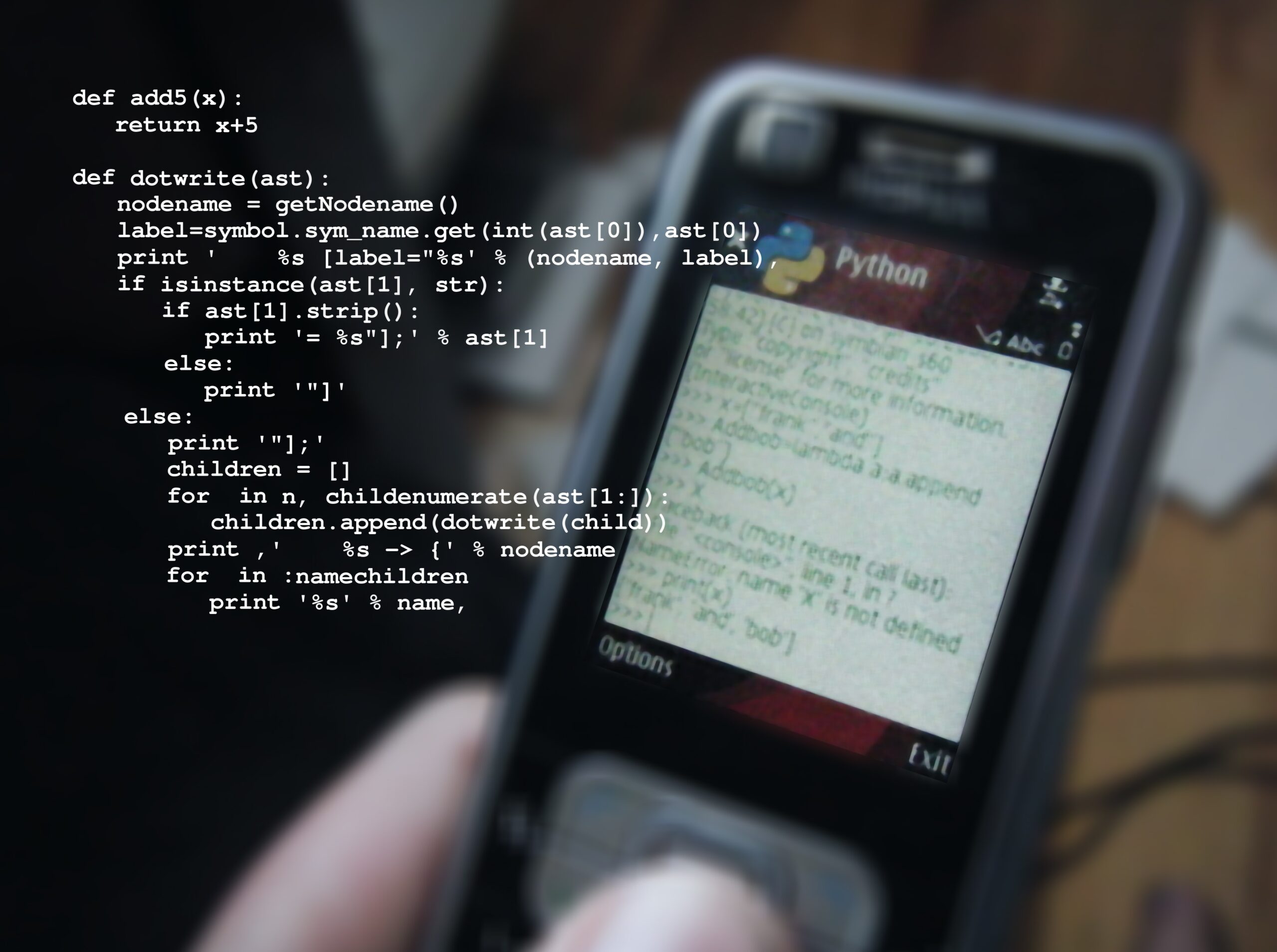Why Programming Is Important for Students: Key Skills, Career Benefits, and Academic Success
When I think about the skills that shape the future, programming always tops my list. It’s not just about writing code—it’s about learning how to solve problems and think logically. In a world that’s driven by technology, understanding how things work behind the scenes gives students a real advantage.
I’ve seen how programming empowers students to turn their ideas into reality. Whether they’re interested in science, art, or business, coding opens doors to endless opportunities. It’s a skill that goes beyond the classroom and helps students grow into creative, confident thinkers ready for any challenge.
The Growing Role of Technology in Education
Classrooms now integrate technology into core lessons. My experience shows that digital platforms, coding applications, and AI-powered tools drive engagement and efficiency. Students use interactive simulations to visualize concepts in science, math, and arts. Learning management systems simplify assignments and feedback. Schools with strong tech integration report higher student achievement, according to the National Center for Education Statistics (NCES).
Programming connects directly to these innovations. Mastering programming languages helps students leverage educational technology. With coding skills, students create educational games, automate tasks, and analyze data trends for research projects.
Technology Integration in Classrooms: Examples
| Tool/Platform | Primary Use | Example Subject | Impact on Learning |
| Scratch | Basic programming skills | Math | Promotes problem-solving |
| Google Classroom | Assignment management | Language Arts | Streamlines collaboration |
| PhET Simulations | Interactive visualizations | Science | Enhances concept understanding |
| Desmos | Graphing and modeling | Math | Enables hands-on exploration |
| Kahoot! | Game-based assessment | Any | Increases student engagement |
Relevance of Programming in the Casino Industry
Casino technology increasingly depends on advanced programming. I observe that software developers build secure online gaming platforms, enable fair random number generation algorithms, and design immersive casino experiences. Programming knowledge equips students to contribute to innovations in casino security, game development, and digital transactions.
| Casino Technology | Use Case | Programming Language Example |
| Online Slot Development | Game logic and animation | JavaScript |
| Security Algorithms | Fraud detection systems | Python |
| Payment Integration | Secure digital transactions | Java |
Educational institutions introduce programming to prepare students for such evolving, tech-driven industries. Recognizing casino technology’s requirements underscores programming’s cross-sector impact, reinforcing its importance for students in a changing world.
Key Skills Developed Through Programming
Students strengthen essential skills like analysis, creative ideation, and teamwork through programming projects. These competencies increase adaptability across academic subjects and emerging career fields.
Problem-Solving and Critical Thinking
Programming enhances analytical abilities and logical thinking. When I debug code or design algorithms, I break large problems into discrete steps and systematically test solutions. This process helps me identify root causes and choose optimal fixes. According to a 2022 report from Code.org, 95% of students who engage in coding activities improve in logical reasoning tasks compared to peers without programming experience.

Examples of Critical Thinking in Student Programming
| Scenario | Critical Thinking Task | Outcome |
| Debugging Python Scripts | Identifying syntax and logic errors | Successful script execution |
| Building Algorithms | Selecting sorting/search strategies | Efficient data handling |
| Designing Apps | Anticipating user flows | Improved user experience |
Creativity and Innovation
Programming expands my creative capacity. Coding lets me express ideas through apps, simulations, or interactive stories. By experimenting with various programming languages, like JavaScript or Python, I quickly prototype and iterate digital solutions to actual challenges, ranging from school projects to community problems. Tools like Scratch and Unity foster both structured problem-setting and imaginative thinking.
Examples of Creative Programming Projects
| Tool/Language | Creative Project Type | Educational Benefit |
| Scratch | Animated math tutorials | Visual learning engagement |
| Unity | Virtual science simulations | Enhanced scientific inquiry |
| Python | Data-art visualizations | Data literacy and design |
Collaboration and Communication
Programming strengthens my teamwork and digital communication skills. Group coding tasks require me to share ideas, review others’ code, and adapt to collaborative workflows using platforms like GitHub or Google Classroom. In classroom game design or hackathons, I communicate technical concepts, document processes, and resolve conflicts efficiently—outcomes valued in both academic and workplace settings.
Team Programming Skills Table
| Skill | Example Context | Result |
| Code Review | Peer-editing projects | Higher code quality |
| Version Control | Shared repositories | Reduced integration errors |
| Demo Presentations | Class project demos | Clearer knowledge transfer |
Secure Systems in Casino Programming
Casino platforms demand advanced programming expertise for data security and fairness. When I explore online gaming technologies, I rely on encryption protocols, random number generators, and comprehensive testing to protect sensitive user data and ensure unbiased outcomes. Regulatory standards, like those set by the UK Gambling Commission, require continuous code audits and transparent algorithm documentation.
Casino Programming Skills in Practice
| Programming Task | Skill Developed | Industry Requirement |
| Encryption Integration | Cybersecurity | Secure player transactions |
| RNG Algorithm Design | Statistical coding | Fairness in game outcomes |
| Backend Data Auditing | Compliance testing | Regulatory adherence |
Career Opportunities and Future Readiness
Programming builds a foundation for students to access a wide range of professional paths. I see this skill increasing career prospects in both traditional tech roles and emerging industries.
Demand in the Job Market
Programming skills drive high-demand roles, with employers across technology, healthcare, finance, and manufacturing actively seeking candidates proficient in at least one programming language. According to the US Bureau of Labor Statistics (BLS), software developer jobs are projected to grow by 25% between 2022 and 2032.
| Occupation | Projected Growth (2022-2032) | Median Salary (2023)* | Example Programming Languages |
| Software Developer | 25% | $127,260 | Python, Java, C# |
| Data Scientist | 35% | $103,500 | R, Python, SQL |
| Information Security Analyst | 32% | $112,000 | C, Python, JavaScript |
| Web Developer | 16% | $81,650 | HTML, CSS, JavaScript, PHP |
*BLS, May 2023
Programming expands job options for students in high-growth industries.
Relevance Across Various Fields
Programming applies directly to diverse sectors. I notice its critical presence not only in the tech industry but also in fields like education, healthcare, energy, and entertainment. For example, Python automates clinical scheduling in hospitals, while JavaScript powers interactive museum displays.
| Sector | Programming Application Example |
| Education | Custom learning apps, classroom analytics |
| Healthcare | Medical image processing, EHR automation |
| Energy | Real-time grid data management, modeling |
| Entertainment | Video game design, streaming platforms |
Students benefit from programming proficiency, unlocking roles outside pure tech development.
Programming in Modern Casino Gaming
Programming stands as the cornerstone of innovation and security in casino gaming. I find major online casinos rely on advanced algorithms for fair game outcomes, secure financial transactions, and engaging virtual experiences. Skills in languages like C++, Java, and specialized scripting support the creation and maintenance of random number generators (RNGs), fraud detection, and interactive gameplay features.
| Casino Tech Area | Programming Function | Associated Language |
| Game Algorithms | RNG logic, payout models | C++, Java |
| Platform Security | Encryption, transactions | Python, JavaScript, SQL |
| User Experience | Graphics, live features | Unity (C#), JavaScript |
Students with programming skills align with the rapid digital transformation and regulatory needs in casino technology, ensuring they’re prepared for roles in secure online gaming, compliance software, and platform innovation.
Enhancing Academic Performance and Learning
Programming strengthens students’ understanding and outcomes across core subjects. Mastering coding concepts unlocks pathways for improved academic achievement and self-driven learning.
Support for STEM Subjects
Programming supports STEM achievement by bridging concepts in science, technology, engineering, and mathematics. Coding projects frequently require mathematical logic, such as using conditional operators and loops in Python assignments or calculating variables in JavaScript simulations. Science lessons use programmable models to visualize chemical reactions, while engineering classes incorporate Arduino boards for hands-on problem-solving. According to the NCES, schools integrating coding into STEM curricula see a 14% average rise in test scores for math and science compared to schools without programming exposure.
| Integration Area | Programming Application | Academic Impact |
| Math | Algorithm-based problem sets, Scratch projects | Boosts logic and quantitative reasoning |
| Science | Simulations, data analysis via Python | Enhances understanding of scientific concepts |
| Engineering | Arduino robotics builds, automation coding | Increases practical problem-solving skills |
| Technology | AI tool development, web-based tools | Advances technical literacy and creativity |
Building Confidence and Motivation
Programming builds academic confidence as students experience success in creating functional projects. Completing coding assignments gives learners tangible progress examples, like developing a basic app or troubleshooting code for a game in Scratch. Coding challenges and competitions such as Hour of Code encourage healthy risk-taking and resilience after setbacks. Studies from Code.org (2022) show that 89% of students feel more motivated in their coursework after engaging in programming activities.
| Factor | Programming Effect | Measured Outcome |
| Task Completion | Custom project and solution development | Higher self-efficacy, increased persistence |
| Peer Collaboration | Team coding assignments, code review sessions | Stronger communication, increased motivation |
| Exposure to Challenges | Debugging, learning new languages | Improved resilience, willingness to experiment |
Casino Algorithms and Academic Connections
Programming in casino environments applies critical academic concepts from math and computer science. Students who work with algorithmic thinking in programming assignments understand probability and randomness, directly relevant to casino games. Developing secure casino platforms requires advanced encryption and fair outcome generators, translating classroom programming lessons to real-world contexts. For example, task-based coding in languages like Python or C++ helps students model probability distributions or create simple game simulations, illustrating the academic rigor necessary for secure digital gaming.
| Related Academic Skill | Casino Programming Application | Educational Context |
| Probability/Statistics | Random number generation, fair odds | Math and technology integration |
| Algorithmic Logic | Game outcome engines, automation scripts | Computer science coursework |
| Data Security | Encryption protocols, compliance testing | STEM-driven security awareness lessons |
Making Programming Accessible to All Students
Making programming accessible to all students means providing inclusive entry points, tools, and supports that help every learner, regardless of background or skill level, participate in coding activities.
Inclusive Coding Learning Environments
Creating inclusive environments in programming classes enables students from various backgrounds to thrive.
- Differentiated Instruction: I adjust lesson pacing and materials based on student proficiency, using platforms like Code.org for beginners and Repl.it for advanced learners.
- Visual Programming Tools: I use block-based tools such as Scratch and Tynker, which eliminate syntax barriers and support younger or less-experienced students.
- Flexible Classroom Models: I combine self-paced modules, peer learning, and teacher guidance, addressing diverse student needs.
Low-Cost and Free Programming Resources
Using freely available resources breaks down financial barriers for students.
- Open-Source Curriculum: I rely on publicly accessible guides from organizations like Khan Academy and freeCodeCamp.
- Community Learning: I connect students to free after-school coding clubs and hackathons, such as Girls Who Code and CoderDojo.
- Device Accessibility: I select browser-based coding environments, reducing the dependence on expensive hardware.
| Resource/Initiative | Cost to Students | Type | Example Use Case |
| Scratch | Free | Visual Coding | Game and story creation |
| freeCodeCamp | Free | Web Dev | Learn HTML, CSS, JavaScript |
| Khan Academy Computing | Free | Interactive | Intro to JavaScript, SQL, Pixar |
| CoderDojo | Free | Community | In-person, peer-led projects |
| Code.org | Free | K–12 Curriculum | School and home assignments |
Supporting Underrepresented Groups
Supporting underrepresented groups in programming addresses gaps in diversity and opportunity.
- Culturally Relevant Content: I feature projects linked to students’ cultures or personal interests, increasing engagement.
- Targeted Outreach: I promote programs for girls and minorities, such as Black Girls Code and ICT4D initiatives.
- Accessible Instruction: I adapt resources for students with disabilities, using screen readers and text-to-speech features in coding platforms.
Programming and Casino Security: Application of Universal Skills
Applying universally accessible programming skills to casino security shows real-world value for diverse learners.
- Algorithm Basics: I teach foundational logic concepts required in gaming fairness algorithms, like random number generation.
- Data Security Protocols: I introduce secure coding practices through simplified encryption exercises before progressing to casino-level security.
- Real-Life Relevance: I demonstrate how student-designed games use fairness and security concepts mirroring actual online casino safeguards.
| Casino Programming Skill | Classroom Activity Example | Learning Outcome |
| Randomization Algorithms | Build a fair dice rolling app | Understand unbiased outcomes |
| Data Encryption | Encrypt and decrypt messages | Grasp confidentiality concepts |
| Compliance Testing | Simulate rule checks in Scratch | Practice rule verification logic |
Equitable access to programming education prepares every student to contribute to technology-driven sectors—from classrooms to casinos.

Conclusion
When I look at the role programming plays in education today I see it as more than just a technical skill. It’s a gateway for students to unlock creativity build confidence and prepare for a future shaped by technology. By making programming accessible and relevant to every learner we’re not just teaching code—we’re helping students discover their potential and thrive in any field they choose.
Frequently Asked Questions
Why is programming considered an essential skill for the future?
Programming is vital because it develops problem-solving, logical thinking, and creativity. These skills give students an advantage in a technology-driven world and prepare them for a wide range of careers and challenges.
How does programming benefit students beyond just learning to code?
Programming improves critical thinking, collaboration, and communication. It empowers students to turn their ideas into real projects, making them more confident and creative thinkers who can tackle various problems.
What role does technology play in modern classrooms?
Technology in classrooms boosts engagement and efficiency by integrating digital tools, coding apps, and AI-powered platforms. These resources help manage assignments, assess learning, and personalize education to improve outcomes.
What are some examples of tools and platforms used for programming education?
Popular classroom tools include Scratch for basic coding, Google Classroom for organizing assignments, and Kahoot! for game-based assessments. These platforms make learning programming fun and accessible to students of all ages.
How does programming relate to industries like casinos?
Programming is essential in the casino industry for creating secure online platforms, developing fair gaming algorithms, and delivering immersive experiences. It ensures security, fairness, and a better user experience.
What core skills do students develop through programming?
Students gain analytical skills, creative thinking, teamwork, and adaptability. Programming challenges them to solve problems, debug code, and collaborate—abilities that are valuable in school and future careers.
How does programming improve academic performance in STEM subjects?
Coding projects rely on math, logic, and science concepts, reinforcing classroom learning. Schools that integrate coding often see higher student achievement and test scores in STEM fields.
What career opportunities does programming open up?
Programming skills are in high demand across many sectors: technology, healthcare, finance, education, and more. Software development jobs, for example, are projected to grow by 25% from 2022 to 2032.
How can programming be made accessible to all students?
To ensure inclusivity, educators use visual programming tools, differentiated instruction, and flexible learning models. Free and open-source resources also help break down financial and entry barriers.
Why is it important to support underrepresented students in programming?
Supporting diverse learners through culturally relevant content, outreach programs, and accessible teaching methods ensures everyone gains programming skills, helping to build a more equitable and technologically savvy society.


